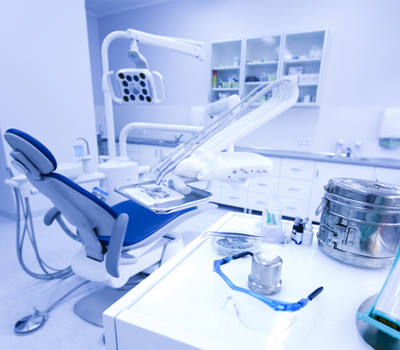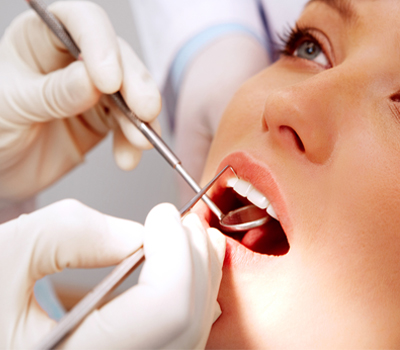Many parents have the same questions about pursuing orthodontic treatment. What is the best age to see the orthodontist? And is there a right age for getting braces?
Parents often assume this can only be done once all the teeth are in but certain bites and issues should be treated at younger ages before all permanent teeth have erupted. Some of these issues include:
- Overbite (Excess Overjet)
- Crossbites
- Underbite
- Uneven Bite
- Overcrowding
- Protruding Teeth
Your child should have an initial orthodontic consultation at the age of 7 so that your orthodontist can address any orthodontic concerns and check for these issues. If your child does not have any issues that require early treatment your child probably won’t need braces until the age of 10 to 12.
Sleeping is essential to our health; it helps keep a healthy heart, reduces stress, boosts alertness, improves memory and helps the body repair itself. We’ve all experienced the occasional sleepless night but what if you are “sleeping” and still not feeling your best through the day. It could be a sleep disorder known as Sleep Apnea. Many people suffer from it but are unaware that they have it. The most common type of Sleep Apnea is Obstructive Sleep Apnea (OSA), which is when a person stops breathing periodically throughout the night due to physical obstructions of the airway.
It is extremely crucial that OSA is managed as it can become serious and lead to death. When breathing stops the oxygen level in your blood could drop, this will cause strain on your cardiovascular system making your heart work harder. OSA can increase risk of heart attack, high blood pressure and diabetes. All this sounds scary but on the bright side OSA can usually be successfully treated. Speak to your doctor if you or a family member notice the following symptoms:
- Loud snoring or Silence when asleep
- Gasping or Choking sounds while asleep
- Insomnia or Hypersomnia
- Frequent sore or dry throat
- Teeth grinding
Once you have been diagnosed by your medical doctor they may recommend a CPAP (continuous positive airway pressure). This machine keeps the airway open and prevents breathing from stopping during sleep. Keep in mind you also have the option of a Sleep Apnea dental device this is an oral appliance that brings your jaw forward opening the airway. Some patients may opt for a dental appliance over the CPAP due to comfort and portability issues. Dr. Washington and our team at The Brace Place are knowledgeable about OSA and can fabricate dental sleep devices. Please contact our office for more information; we would love to provide you with regenerative sleep.
It is a common misconception to think that all dental offices are alike. That’s why people pick a dental office simply based on its proximity to their workplace or home. Or they may pick one charging the lowest rates.
At The Brace Place, we like to think our office is singularly unique and here’s why:
- The head of our team is Dr. Lateefah Washington, who grew up in NYC. After completing her BA in Cornell University, she went on to the New Jersey Dental School where she graduated in the Top 10 of her class and was inducted into the OKU Dental Honor Society.
- Dr. Washington then completed her MS and certificate in Orthodontics at the University of Minnesota, where she graduated in the top 5 of her class. She’s a member of the American Association of Orthodontists, Southwestern Association of Orthodontist, and the Texas Dental Association. She has been recognized as a Top Orthodontist by the Consumers’ Research Council of America and has been featured in Voyage Dallas magazine.
- Dr. Washington has worked as an orthodontist for 10 years, making her a highly qualified and experienced orthodontist. She has treated more than a thousand orthodontic patients!
- Our office is open before school and after work.
- Our staff has over 30 years of combined orthodontic experience.
- We are not a chain. Thus we do not have a high turnover of doctors or staff members. Our doctor is only at one location thus you do not need to travel miles out of your way if you had an emergency to see your doctor.
- Our office provides orthodontic services for all ages. According to the American Association of Orthodontists, children should have their initial orthodontic evaluation before they turn 7 years old.
- Our innovative techniques and state-of-the-art dental equipment ensure reduced patient discomfort, minimal anxiety and shorter treatment times. We make every effort to provide convenient appointment times that fit your busy schedule.
- We offer invisible braces and behind the teeth braces to help patients feel less self-conscious about wearing braces. We also offer accelerated orthodontics that can reduce treatment time to under 6 months.
- We also offer mouth guards for sports and mouth guards that keep you from grinding your teeth while you sleep.
- Our goal is to make your visit an anxiety-free experience. We have Zen-like murals on the walls and comfy chairs with armrests in our lobby. Ahh…relax and enjoy!
- On arrival, you’ll meet Chelsea at the front desk. Chelsea is our financial and treatment coordinator and always enjoys helping with any concerns and questions you may have.
- Finally, we have a well-furnished sterilization area to make sure that all the tools we use are sterile and clean.
At Brace Place, we like to think of ourselves as more than just another dental clinic and look forward to sharing the experience with you!
There are times when conventional orthodontic solutions cannot successfully treat a bite problem. Severe malocclusion may require surgical treatment particularly if it is causing functional problems such as speech difficulties, inability to properly chew food and facial dysfunction in the form of joint pain, headaches or gum problems. Self-esteem issues brought about by jaw abnormalities may also necessitate the need for surgery.
Also known as orthognathic surgery, surgical orthodontics is used to treat severe cases of jawbone abnormalities and bad bites. If your orthodontist has determined that you need surgery, he or she will work with an oral & maxillofacial surgeon to ensure you receive the best care possible.
Do I Need Surgery?
Adults suffering from severely bad bites or have concerns about their facial appearance may consider surgical orthodontics. But to know for certain whether it is necessary, your orthodontist will evaluate your mouth structures including your jaws, teeth, and gums before making a diagnosis.
Typically, jaw growth stops between the age of 16 and 18. When the jaws do not line up properly and cause functional and aesthetic problems for the patient, orthognathic surgery may be needed to move the jaw and teeth into their correct position. An orthodontist will wait until the jaw has stopped growing before determining whether surgery is the appropriate treatment.
How It Works
Orthodontic surgery can only be performed by a licensed oral & maxillofacial surgeon and the surgery often takes place in a hospital setting. The surgery can take several hours and once complete, you will be required to rest for at least two weeks. Since this is a major procedure, you will be advised not to work or go to school during this period. The healing phase takes several weeks.
Once the jaw has healed, your bite will be “fine-tuned” by the orthodontist. You may be prescribed braces or clear aligners, which you’ll need to wear for 6-12 months. Then you’ll wear retainers to maintain the proper position of your teeth will be maintained.
Benefits of Orthognathic Surgery
For many of our patients, the best reward of having orthodontic surgery is a healthy and beautiful smile. Orthognathic surgery can correct malocclusions and jaw abnormalities enabling you to chew your food properly, speak more clearly and smile more confidently. It is also considered a treatment option for those suffering from obstructive sleep apnea.
Is Orthodontic Surgery Risky?
As with all major surgical procedures, there are risks associated with orthognathic surgery. If you have any concerns, please feel free to ask your oral surgeon.
Surgical Orthodontics is a collaborative effort between your dentist, orthodontist and oral & maxillofacial surgeon. We will work together to create a treatment plan that will move your teeth to their ideal position by means of surgery.
To find out if you’re a suitable candidate for orthognathic surgery, please schedule a consultation appointment with Dr. Washington. We will discuss your concerns and objectives, and perform a thorough examination of your mouth to determine if surgery is right for you.






